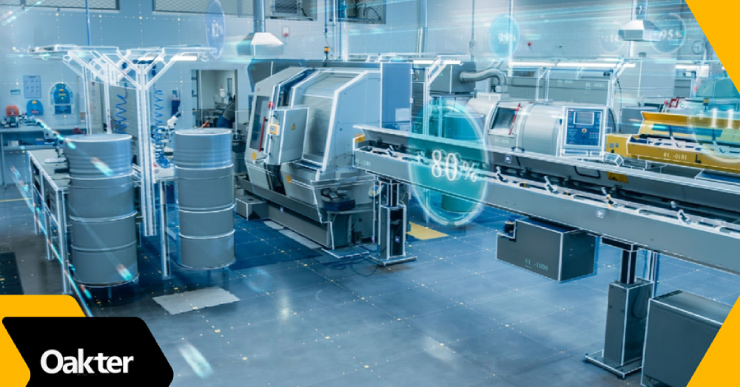
How Can Industrial Automation Benefit EMS Manufacturing?
Electronic companies continuously seek ways to bring out innovative new products to capture a more significant market share. They focus on taking products to market faster, cutting manufacturing costs, bringing more efficiency to their processes, and securing a competitive edge in crowded markets.
Currently, a growing number of companies are leveraging specialist Electronic Manufacturing Services or EMS manufacturing to meet these various business goals. Industrial automation, which leverages cutting-edge technologies and robotics to solve business problems and optimise the production efficiency, plays a pivotal role in the manufacturing pipeline.
In this blog, we delve into how industrial automation revolutionises EMS manufacturing and outline its key business advantages.
EMS Manufacturing: Simplified
Before getting into the details of industrial automation, let’s first understand what exactly EMS manufacturing is. Electronic companies or original equipment manufacturers (OEM) outsource a large chunk of their manufacturing needs to save on costs.
However, with the integration of the Internet of Things (IoT) and other information technologies, electronic products and their parts are becoming more complex to manufacture.
This is where EMS manufacturing bridges a critical gap in production and enables contractors with highly specialised capabilities to step into producing niche, cutting-edge products at scale.
While cost saving is a clear advantage, superior production output is another differentiator. The spectrum of services offered by EMS manufacturing can include design, assembly of final products, production, and quality testing of the electronic components or finished products, for OEMs.
Owing to its augmented capabilities, EMS manufacturing businesses are now using industrial automation to disrupt the market and deliver an even more significant advantage to OEMs.
What Is Industrial Automation?

Industrial Automation refers to the use of robotics, information technologies, control systems, and computers to handle various processes.
The key outcome of onboarding industrial automation is to bring more efficiency and raise productivity in the manufacturing industry.
While automation has been widely used in sectors like the semiconductor industry and the manufacturing of smart electronics, it is now also being applied to areas such as the assembly and production of printed circuit boards.
As EMS manufacturing leverages industrial automation, their processes will be less dependent on human labour for quality control and material handling processes.
Now, let’s understand the key benefits of leveraging industrial automation in EMS manufacturing for electronic companies.
Top Benefits of Industrial Automation
As the demand for innovative, connected products at lower costs rises, EMS manufacturing will need to become more strategic in its operations.
Here are some of the key benefits that industrial automation offers EMS manufacturing:
1. Boosting product quality
It is well-established that manual processes consume immense effort and time for production teams. Introducing industrial automation reduces the time taken by the human workforce, freeing up their bandwidth to focus on finer tasks that demand innovation, creativity, and strategy.
2. Enhanced efficiency
Manual efforts may result in duplication, errors, and negligence due to boredom and distraction of workers, especially in any repetitive and manual task.
Implementing industrial automation reduces room for error and increases precision. It brings more efficiency to all processes.
3. Accelerating rate of production
Another disadvantage of manual processes is that it reduces the speed at which products can be produced.
On the other hand, leveraging industrial automation in EMS manufacturing helps companies take products to market faster as it accelerates production speed.
4. Increased cost savings
EMS manufacturing offers cost savings as a definitive advantage to partner OEMs.
By introducing industrial automation at all stages of the production process, EMS manufacturing firms can transfer additional savings to their partners, and in turn, to consumers of the products.
5. More opportunities for customisation
The market is seeing a growing demand for customised products. Industrial automation capabilities include a greater degree of customisation, enabling electronic companies to offer this value-add.
As a result, EMS manufacturing companies can programme customisation into their production process without impacting product quality and profitability.
6. Launch new products with speed
Electronic companies constantly aim to produce more innovative products based on evolving consumer needs.
Industrial automation in EMS manufacturing units enables quicker design, execution, and production of new products without missing market opportunities.
7. Equipping workers with the right tools
Industrial automation offers workers tech-driven tools such as high-tech sensors, which help drive more efficient output. They bring precision, measurability, and quality control systems that enable improved working experience.
Growing demand for EMS manufacturing Across Industries
Several industries are engaged in the manufacture of innovative smart products to meet the demands of digital transformation. They are leveraging the capabilities of EMS manufacturing specialists to fulfil their requirements. Industrial automation will play a significant role in meeting consumer demands in an efficient, cost-effective manner.
Some Industries that EMS manufacturing Serves
- With technological advances, smart consumer electronics such as smartphones, air conditioners, laptops, ovens, and refrigerators are also becoming more user-friendly. They are leveraging technology such as IoT to conserve energy and function more efficiently.
- The healthcare ecosystems of today require smart medical and diagnostic devices to aid in the digital transformation process.
- Semiconductors and connectors are inseparable parts of modern life, and they must be produced at scale and with the right specs. There is no room for error, which is possible with the help of industrial automation.
- Smart and eco-friendly automobiles need to be fitted with advanced communication, data, and location capabilities.
- Contemporary defence and aerospace equipment has undergone a massive transformation, which required specialist manufacturing interventions.
- Energy providers are also considering EMS manufacturing a viable solution to deliver products that power sustainable energy sources such as solar and wind power.
Final Words
Industrial automation is changing the way EMS manufacturing companies make products. The benefits are transferred to OEMs, and their customers, thus creating a win-win for all stakeholders.
Oakter‘s EMS Manufacturing services leverage industrial automation to facilitate the complete cycle from concept to full-scale manufacturing for OEMs operating on the cusp of innovation.
The spectrum of products delivered ranges from connected electronics development and full stack IOT software development to battery technology.
Start a conversation, and bring efficiency and quality to your manufacturing outcomes.
Reach out to us today!

